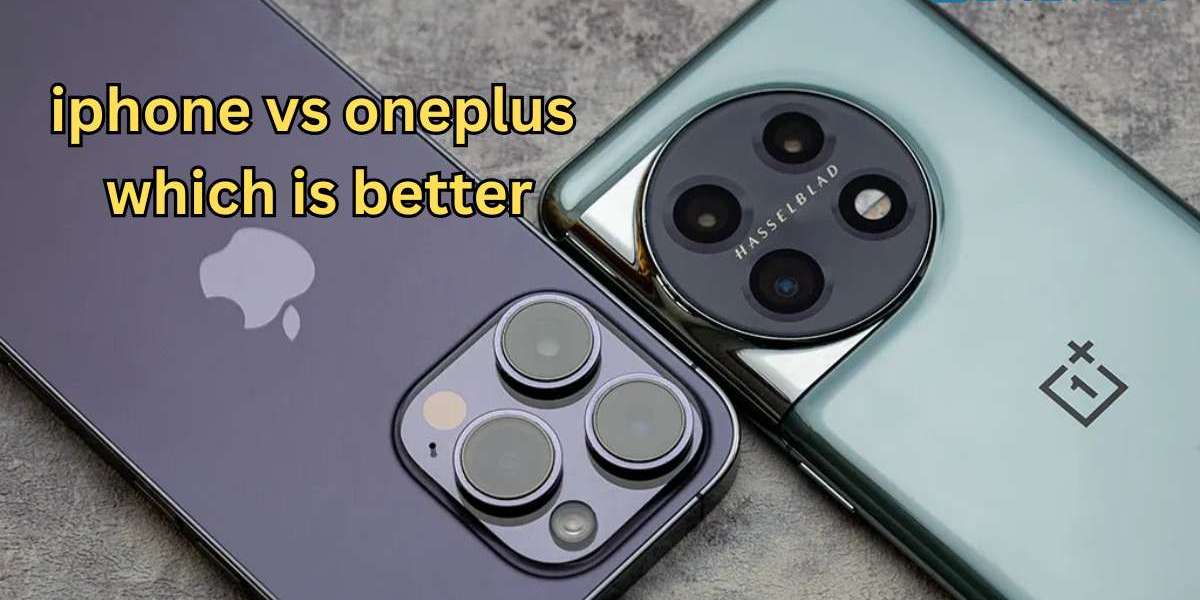In the ever-evolving smartphone market, two brands often stand out as top choices: Apple’s iPhone and OnePlus. While both deliver high-performance devices with premium designs and powerful features, they cater to different user priorities. If you’ve found yourself asking, “iPhone vs OnePlus: which is better?” — you’re not alone. The answer depends on what you value most in a smartphone experience: ecosystem, performance, customization, price, or software updates.
Let’s dive deep into the key factors that differentiate iPhones and OnePlus phones to help you make an informed decision.
Design and Build Quality
Both iPhones and OnePlus phones are known for their premium build quality. Apple’s iPhones often feature aluminum and glass bodies with refined, minimalistic aesthetics. The design is consistent across models, providing a sleek, unified feel that’s immediately recognizable.
OnePlus phones, particularly its flagship “Pro” models, also boast high-end materials and sleek design, often pushing the envelope with bold color options, curved displays, and thinner bezels. OnePlus typically offers more experimental design elements, while iPhones tend to stick with a classic and timeless look.
If design innovation and variety excite you, OnePlus may offer the edge. But if you appreciate the luxury and consistency of Apple’s craftsmanship, the iPhone is hard to beat.
Software Experience: iOS vs Android
One of the most significant differences between iPhone and OnePlus lies in their operating systems.
iPhones run on iOS, Apple’s proprietary software. iOS is known for its simplicity, intuitive interface, smooth performance, and deep integration with other Apple products. If you already own a MacBook, iPad, or Apple Watch, using an iPhone enhances your overall ecosystem experience with features like Handoff, AirDrop, and iMessage.
On the other hand, OnePlus runs on OxygenOS (based on Android), which is highly customizable and closer to stock Android. Android offers more flexibility, allowing users to tweak almost every aspect of their phone—from the app launcher to system settings. For users who enjoy personalization and experimenting with apps and settings, OnePlus provides a more open and adaptable experience.
So, iPhone is better for a seamless, polished ecosystem; OnePlus excels in freedom and customization.
Performance and Speed
Both iPhones and OnePlus phones are incredibly powerful. Apple’s in-house chips, like the A16 or A17 Bionic, consistently rank among the fastest in the smartphone industry. iPhones are optimized for performance, offering smooth multitasking, fast app loading times, and exceptional gaming performance.
OnePlus phones, especially their flagships equipped with Snapdragon 8 Gen chips and ample RAM, are no slouch either. They often match or even outperform iPhones in benchmarks for certain tasks, especially when it comes to raw multitasking capabilities, thanks to more RAM and aggressive memory management.
If you're looking for raw power, both brands deliver. However, iPhones may be slightly more efficient thanks to tight software-hardware integration.
Camera Capabilities
Cameras have become one of the most important features in smartphones, and both iPhones and OnePlus have made big strides.
iPhones are renowned for their consistent image quality, natural color tones, and superior video recording capabilities. Features like Cinematic Mode, ProRAW, and Smart HDR make them a go-to choice for mobile photographers and videographers.
OnePlus, while slightly behind Apple in camera consistency, has improved significantly. Recent models like the OnePlus 11 and OnePlus Open feature Hasselblad-tuned cameras with great dynamic range and rich colors. However, low-light performance and video stabilization are areas where iPhones still maintain a lead.
Choose iPhone for the best all-around photo and video quality; opt for OnePlus if you’re satisfied with solid performance and some creative flexibility.
Battery Life and Charging
Battery performance is another critical area where both brands bring strong offerings — but in different ways.
iPhones generally provide excellent battery optimization. While the battery capacity may be smaller than Android counterparts, Apple’s tight hardware-software integration ensures efficient power management. However, iPhones are slower to adopt fast charging speeds.
OnePlus, on the other hand, offers industry-leading fast charging capabilities — some models can charge from 0 to 100% in under 30 minutes. This is a game-changer for busy users. Additionally, recent OnePlus phones provide competitive battery life with large-capacity batteries.
So, if fast charging is a must-have, OnePlus clearly leads. For battery efficiency and reliability, iPhone performs admirably.
Price and Value
One of the most significant differentiators in the iPhone vs OnePlus debate is price.
iPhones are premium devices with a premium price tag. Apple rarely offers deep discounts, and even older models hold their value. However, you are paying not just for hardware, but also for customer support, frequent updates, and long-term reliability.
OnePlus often provides better value for money, delivering high-end specs at a more affordable price. Their “flagship killer” legacy means you can get similar performance and features found in much more expensive phones at a lower cost.
If you're budget-conscious or looking for maximum features per dollar, OnePlus is the better choice. If you're willing to pay more for polish and longevity, go with iPhone.
Software Updates and Longevity
Apple supports its iPhones with regular software updates for five years or more. That means even older devices like the iPhone 11 or 12 still get the latest iOS updates, making them relevant for longer.
OnePlus also offers solid update support, though it has historically lagged behind Apple in duration and speed of rollouts. While newer models now promise up to four years of major updates, the track record has been mixed.
For the longest support window and peace of mind, iPhone wins here.
Final Verdict: iPhone vs OnePlus – Which Is Better?
Ultimately, the choice between iPhone and OnePlus comes down to what matters most to you.
Choose iPhone if you value a polished, secure ecosystem, frequent updates, seamless integration with other Apple products, and industry-leading camera and video performance.
Choose OnePlus if you prioritize value for money, fast charging, customization, and the flexibility that Android provides.
There’s no one-size-fits-all answer. “iPhone vs OnePlus: which is better?” isn’t just about specs — it’s about which phone fits your lifestyle, budget, and digital habits. No matter which one you pick, both brands offer outstanding smartphones that won’t disappoint.








